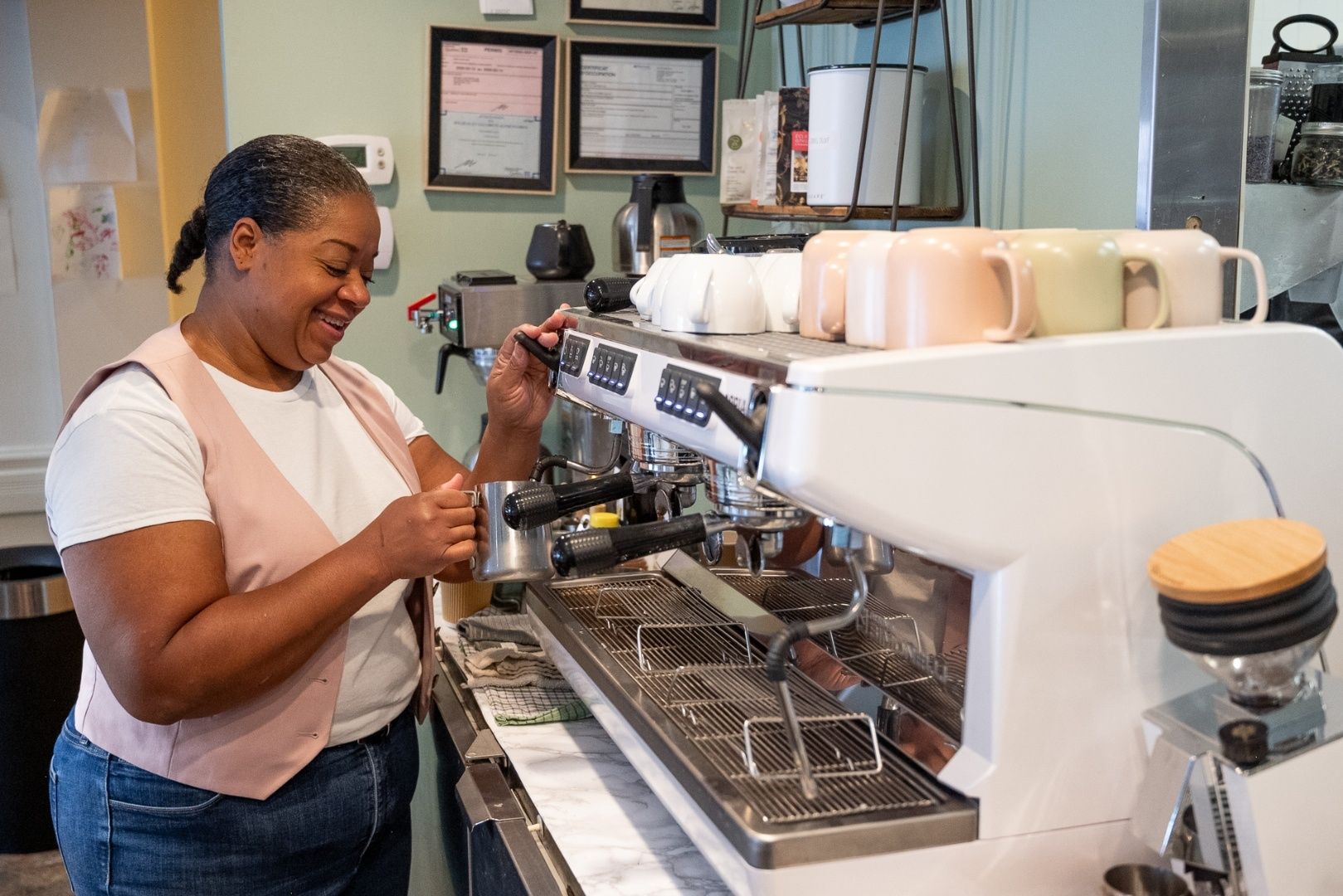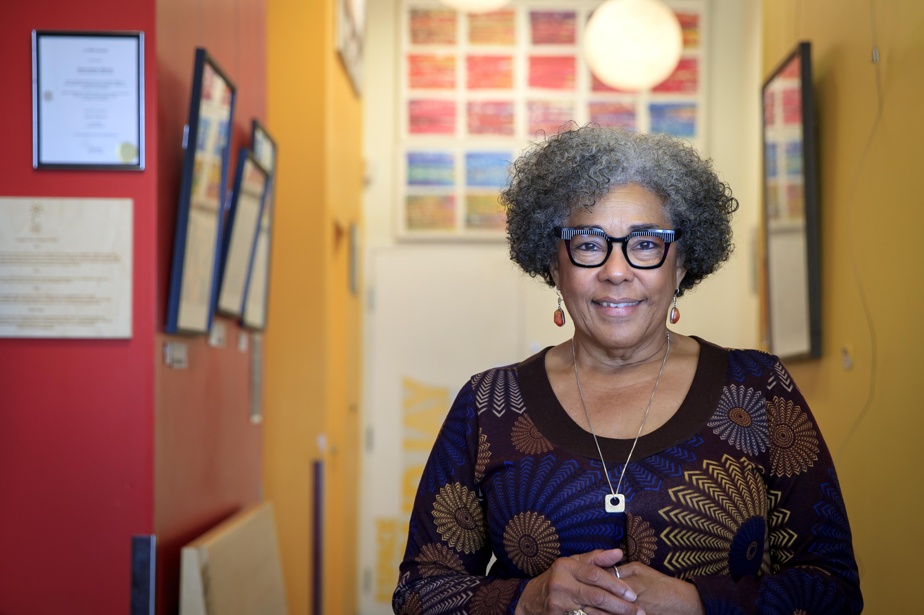While in Quebec, aerospace engineer Farah Alibay is on all platforms. Now celebrated across the province as the Quebec woman from NASA who maneuvers a robot on Mars, she inspires young women of color to follow in her footsteps. We spoke with her, before going to meet the future Farah of Quebec.
Persevere to achieve your dreams
Farah, who is of Malagasy origin, has not always been a rosy one. “There were really times, growing up, when I was not sure I would be accepted into society,” she tells us at the C2 Montréal conference. Already, I work in a field that is dominated by men... and on top of that there is culture and skin color — it can be tiring.”
Doubts, questions, impostor syndrome and failure were there. When she was a teenager, a career counsellor tried to discourage her from pursuing engineering. As a young adult, she failed all the courses in her first university term. During her studies, she made more than twenty applications to NASA before receiving an internship offer. At work, she experiences sexism from a manager. Like “small cuts,” sexism and racism mark his academic and professional career. “There were moments when I said to myself, “Why am I pursuing this dream?” ”, Farah Alibay tells us. But her desire to explore space pushes her to persevere.
“Every time I was told something that I didn't want to hear, what helped me was to find that passion again.” Today, she feels that she was lucky to overcome her doubts. “I was lucky to get over that, and I know that we're losing a lot of women, a lot of people of color because of that — because we're not encouraged, because we can't find anything. our place in our field.” Farah says that, when she lived in Quebec, she lacked mentors and role models to look into. “I Was watching Apollo 13, and I noticed that the people all looked the same. I didn't even allow myself to dream of going to work at NASA one day,” she illustrates. Today, she wants to use the platforms that are offered to her to give young women this role model that she never had.
“I want to show people that you don't have to look a certain way to follow your dreams and be able to get to a certain place. I want to show them what it takes for them to follow their dreams. And, yes, it forced me to leave Quebec and do something big. But my example shows that there are women like me in these positions and that this is generating interest from the public and the media. And in addition, they are not only found in such roles in the United States and elsewhere in the world, but also here in Quebec. I am happy to be able to offer something different to today's young people.”
The Farah of Quebec
Last February, when the Perseverance robot arrived on Mars, the whole world discovered an aerospace engineer from Joliette. Several racialized women from Quebec then recognized themselves in her.

A student in Secondary 5, Jenin Islam wants to study science, but she does not yet know in which field. Like many women who want to go into the field of science, the teenager went to meet Farah Alibay at the École de Technologie Supérieure last Thursday evening.
Her robotics teacher advised her to attend a science communication workshop at the conference for girls in STEM. “My professors and family encourage me to go into this field; what I'm afraid of is the pressure. I am not good at math, but I am interested in biology and programming,” she said after the workshop. Seeing Farah Alibay's journey, the 16-year-old student is able to look forward to her future in STEM with a bit more confidence. “I tell myself that if she can do it, I will definitely try it too, and maybe I will too.”

Photo: Lela Savic
Jade Tremblay Mainville is a student at Collège de l'Assomption in natural sciences. “Farah's whole story really influenced me to persevere in the world of science,” she confides. I would like to take the world elsewhere. Unlike many people around me, I am not necessarily the best at physics and chemistry, but I am so passionate! she said with enthusiasm. Like Farah, Jade grew up in Joliette. Adopted at the age of one and a half, the young woman of Asian origin felt inspired by the career of an aerospace engineer.
“But I don't see myself going as far as she does. Sometimes when I go to the store, people look at me the wrong way because I am of Asian origin. But knowing that Farah comes from Joliette like me makes things more accessible,” explains the 17-year-old student.
“We all have a Farah in us”

Photo: Lela Savic
“It's a symbol that we all have a Farah in us,” says engineering student Sadia Hussein passionately after hearing the doctoral student talk about her career. “We didn't all grow up in Joliette, but we just need to persevere and it's not too late. Because you can definitely say to yourself: “I didn't go to study in England or MIT, but that's okay. We all have a Farah in us, we just need to want to do it,” she exclaims. Hearing the message from the aerospace engineer motivates her. “As Farah said, the worst that can happen is that I don't succeed in the end, but the best that can happen is for me to fulfill my dream.”
Sadia Hussein is a software engineering student at ÉTS. Since she was 10 years old, she has dreamed of being a software engineer.
Today, she is part of the Ingenieuses, a group of women in engineering. During her high school and college studies, she was often told that she “did not have the profile of an engineer” because she is very social. Even today, she feels that her colleagues and professors doubt her abilities because she is a woman. “You always need to prove that you are capable, whereas for them guys, it's as if it were innate,” she says.
Now in the third year of high school, she is wondering if she has a place in this environment, if she is on the right path. Moreover, the few women who end up with her in STEM are not like her, she tells us. “They are a lot of privileged white women,” she says before adding that she does not have the same background. “Some come from private schools, and I come from public school.
Am I on the same level as them? I feel so lacking in resources. Sometimes I tell myself that I'm never going to make it. I don't see women like me,” the 23-year-old student tells us. After hearing Farah talk about her failures, her doubts and her journey, she burst into tears. “As someone who is not an aerospace engineer, who is nothing at the moment, I am able to understand what Farah went through; it really touched me. It touched me to see that I am not alone in this.
She had the same problems as me. She too felt alone, she too was a member of a minority in her neighborhood, in her school, she too had problems, difficulties, but she persevered. It really impressed me and I said to myself: “I am capable too.” It's normal to doubt yourself,” she says with emotion.
“Farah, for me, it's someone who looks like me”

Zeina Mahran is a natural sciences student at Dawson College. It was only a year ago that she discovered a passion for engineering. When she shares her ambition with those around her, she is asked if she is certain of her choice. “People often don't believe me. They ask me if my parents are not forcing me to go into this field,” she reports.
She adds that during her school career, she was not encouraged to go into science. “It was simply not a possibility; my dream was not destroyed, but I was not given that option, which existed,” says the student. She believes that girls are generally encouraged to go into other fields, including health, under the pretext that they enjoy taking care of others. Ideas that the 19-year-old is questioning.
“We often tell little boys that they are going to become engineers, we never tell little girls, we have to change that”, says Zeina Mahran outraged. But without female role models, it's hard for her to imagine herself an engineer. “So when I see women in these positions, it plants a little seed in my head, it tells me that it's a possibility. It gives me hope and allows me to believe that I have a place in engineering.” Farah Alibay gave her even more hope of achieving her dream. “Farah, for me, she is someone who is similar to me. Even if we do not have the same origins, she is a woman of color, she inspires me. When I see her, it gives me hope that one day I will find myself in a position like hers,” she tells us after hearing the aerospace engineer's talk at G-Change at the École de Technologie Supérieure.
In the province, barely 15% of the 65,000 members of the Ordre des Ingénieurs du Québec (OIQ) are women, explains the president of the order, Kathy Baig. The rate of newly enrolled engineers is 20%. The OIQ would like to increase the rate of new female engineers to 30% by 2030. What does Farah Alibay recommend to those who want to study science, technology, engineering, and mathematics? “You have to know what your passion is, focus on it and forget about other voices.
I have lots of them, people who said to me: “No, you will not succeed in this field where there is no room for you.” You have to understand that for every yes, there will be dozens of no's — you have to be prepared for that. But above all, you have to find your curiosity and go for it, dive into it. You'll see, it's so worth living your dream! ” Dreams that, let's hope, won't be shattered by adversity.







.webp)
.jpg)

